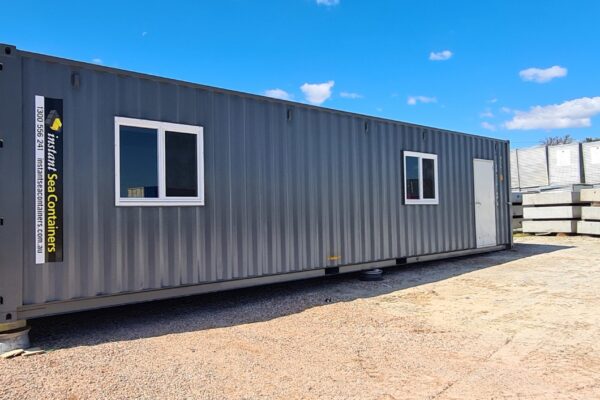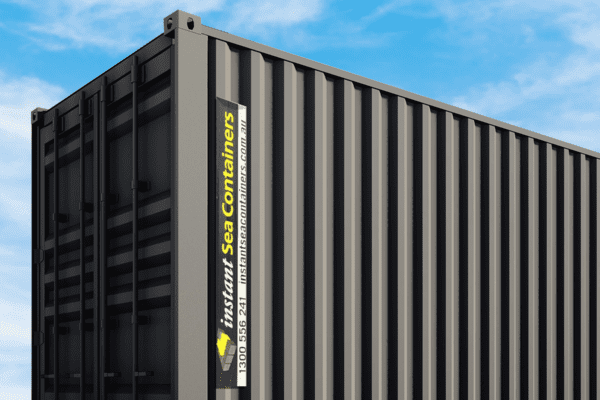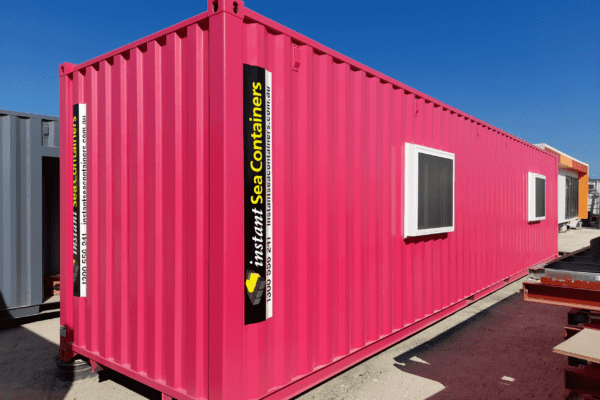Humidity can be a significant issue in shipping containers, causing damage and deterioration to your furniture, office supplies and staff’s health. Excess moisture can lead to mould, mildew and structural damage, compromising the safety of your container. Instant Sea Containers modular buildings are designed to minimise humidity, increase ventilation and provide an everlasting containerised building for your business needs. Here’s how to minimise humidity in a shipping container.
Understanding the Causes of Humidity in Shipping Containers
Shipping containers are super strong, durable modular buildings, constructed primarily of steel. Because of their structure, shipping containers can fluctuate in temperature dramatically.
- Temperature Fluctuations: Metal containers heat up quickly in the sun and cool down rapidly at night. These temperature changes can cause condensation on the container’s cooler interior surfaces. When warm, moist air inside the container meets these cooler surfaces, it condenses into water droplets, leading to increased humidity levels.
- Climate Conditions: Containers located in regions with high humidity levels, such as coastal or tropical areas, are particularly prone to moisture buildup. The ambient humidity in these climates can seep into the container, especially if it is not properly sealed or ventilated.
- Stored Goods: The nature of the goods stored in the container can also contribute to humidity. Items that contain moisture, such as food products, plants, or even certain types of packaging materials, can release moisture into the air inside the container, raising the overall humidity levels.
- Human Activity: When shipping containers are repurposed as offices, or workshops, human activities like cooking, showering, or even breathing can introduce additional moisture into the environment. Without proper ventilation, the added moisture can quickly lead to high humidity levels.
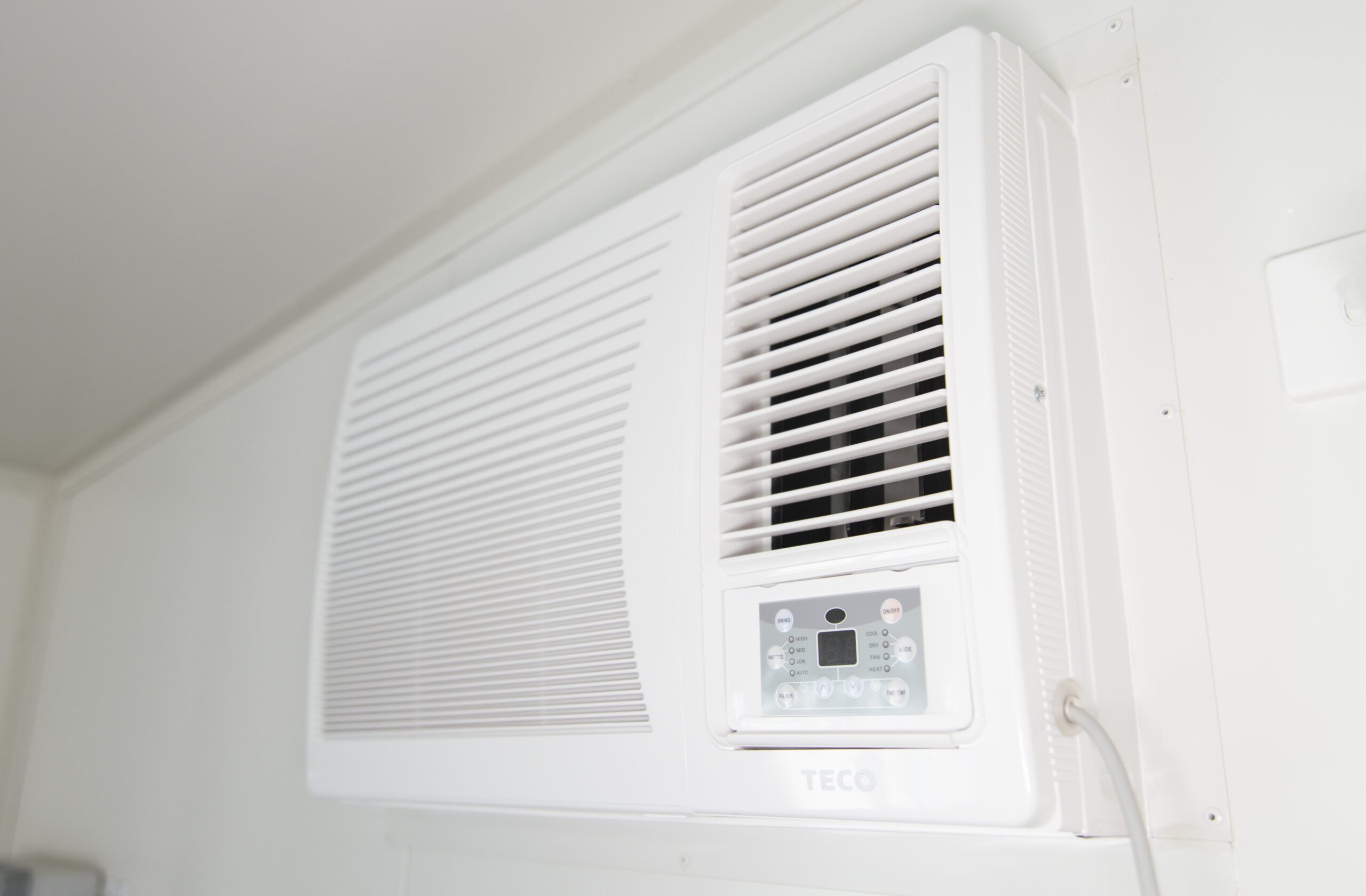
The Risks of High Humidity in Shipping Containers
Excessive humidity in shipping containers can lead to various forms of damage. Mould and mildew can develop, posing health risks and damaging goods like furniture and electronics. Metal structures and fixtures can corrode, while wooden components and insulation can deteriorate completely. Understanding these risks underscores the importance of effective humidity control to maintain the integrity and safety of your containerised buildings.
The benefits of Structural Insulated Panels (SIPs)
Structural insulated panels, or, SIPs, create a protective thermal barrier to reduce the impact of temperature fluctuations on your modular space. SIPs provide enhanced thermal insulation that helps to prevent condensation and maintain a stable internal temperature. SIPs are also structurally enhanced, improving the overall integrity of the container, and are resistant to moisture, mould, and pests, contributing to a healthier and more sustainable building. SIPs are also highly energy-efficient, keeping your container warm in winter and cool in summer. This reduces the need for additional heating or cooling, saving you money on energy costs.
The Benefits of Air Conditioning to Minimise Humidity
Air conditioners are designed to remove moisture from the air as part of their cooling process. This helps to lower the humidity levels inside the container, preventing condensation and mould growth. By maintaining a consistent internal temperature, air conditioners reduce the risk of temperature fluctuations that can lead to condensation. A stable temperature helps keep humidity levels in check. Air conditioning systems also help to filter dust, allergens, and other airborne particles. This improves the overall air quality inside the container, creating a healthier and more productive environment for you and your staff. Our container buildings feature reverse-cycle air conditioning
Tips to Combat Humidity in Shipping Containers
There are a variety of additional measures you can take to minimise humidity in your shipping container:
- Proper Sealing: Ensure that doors and seals are tightly closed and in good condition to prevent external moisture from entering the container.
- Ventilation: Instant Sea Containers are fitted with framed windows, complete with flyscreens. This design enhances natural light and ventilation. Allowing you more control over the internal climate of your office/workspace.
- Dehumidifiers: Dehumidifiers are an effective tool for managing humidity levels as they continuously remove moisture from the air.
- Moisture-Absorbing Materials: Use materials like silica gel or clay desiccants to absorb excess moisture. These can be placed throughout the container to help maintain low humidity levels.
- Monitor Humidity Levels: Use a hygrometer to check the humidity levels inside the container. This will help you take timely action if moisture levels begin to rise.
- Regular Maintenance: Periodically inspect your container for any signs of leaks or damage. Repairing any gaps, holes, or cracks promptly will prevent moisture ingress.
- Buy from a trusted supplier: Trusted suppliers, like Instant Sea Containers, provide high-quality shipping containers, proven to deliver optimal protection against moisture and other environmental factors.
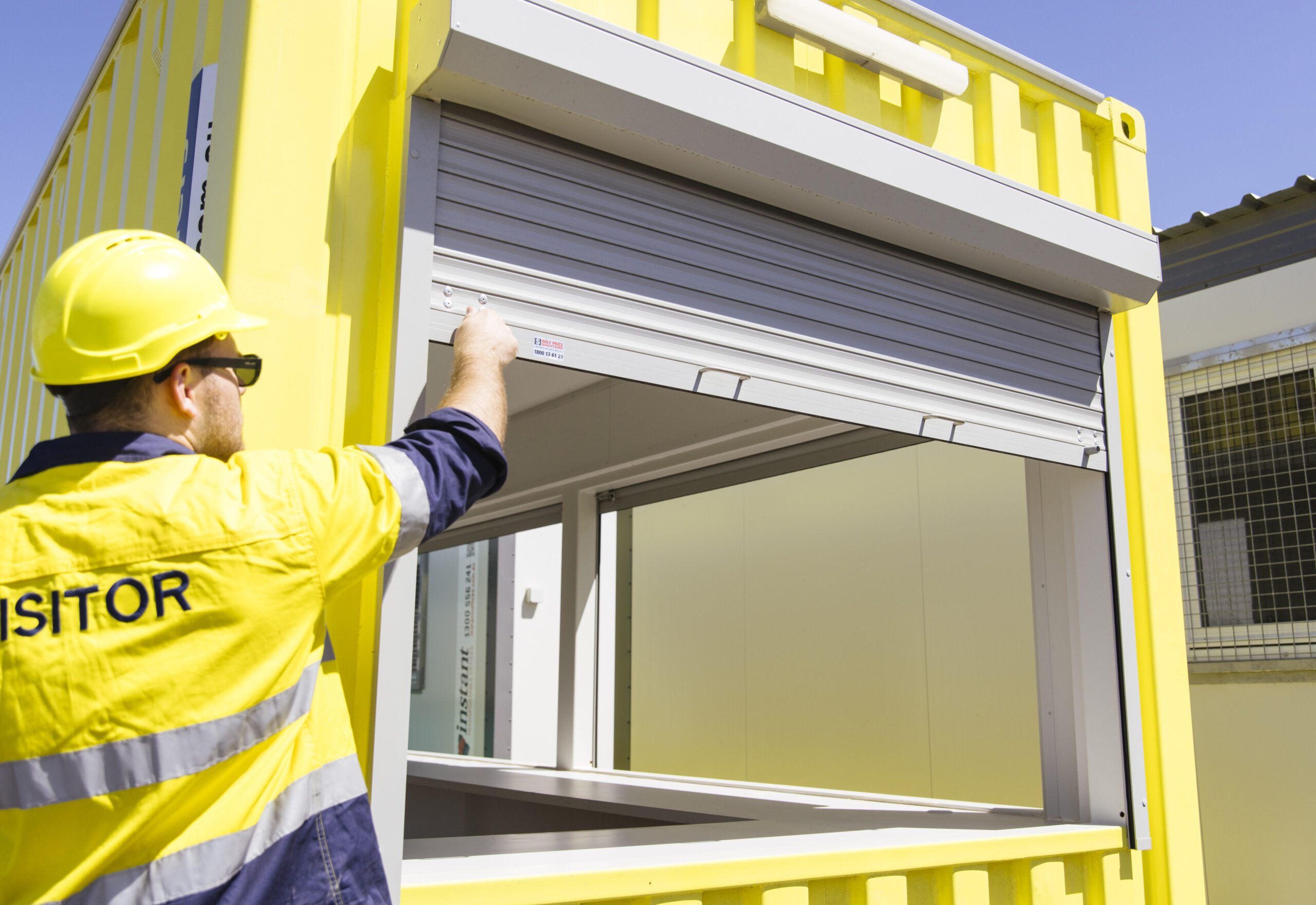
Choose Instant Sea Containers

Managing humidity in shipping containers is essential to prevent damage and preserve the quality of your containerised spaces. By implementing effective ventilation, using dehumidifiers, and taking additional preventive measures, you can significantly reduce the risk of moisture-related problems. Trust Instant Sea Containers to provide you with top-quality containers that ensure the safety and integrity of your containerised buildings.
For more information on how to protect your container from humidity or to buy a high-quality shipping containers, contact Instant Sea Containers today. Secure your humidity-resistant new shipping containers for sale in Perth, today.
Frequently Asked Questions
1. How do I reduce humidity inside a shipping container?
To reduce humidity in a shipping container, use moisture absorbers like desiccants, install proper ventilation, and avoid storing damp goods. Insulating the container and raising it off the ground also helps minimise condensation.
2. Why is humidity control important for shipping container storage?
Controlling humidity in sea containers is essential to prevent mould, mildew, and rust. High moisture levels can damage stored goods and reduce the lifespan of your container, especially in Australia’s variable climate.
3. Can shipping container modifications help manage condensation?
Yes, container modifications such as installing whirlybirds, vents, insulation, or dehumidifiers can significantly reduce condensation. These upgrades are ideal for long-term storage or sensitive cargo.
4. What causes condensation in sea containers?
Condensation in sea containers is caused by temperature changes between the inside and outside of the container, particularly when warm, moist air meets a cooler container surface. Poor ventilation and damp cargo can worsen the issue.
5. Do all shipping containers need humidity control in Australia?
While not all shipping containers require extensive humidity control, areas with high humidity or temperature swings—like coastal or tropical regions—benefit greatly from added ventilation and moisture prevention measures.

Managing Director at Instant Sea Containers
Scott Rawson is the Managing Director of the Instant Products Group, a specialist group of companies that offer portable building solutions, including sea containers, transportable offices, and portable sanitation products.
